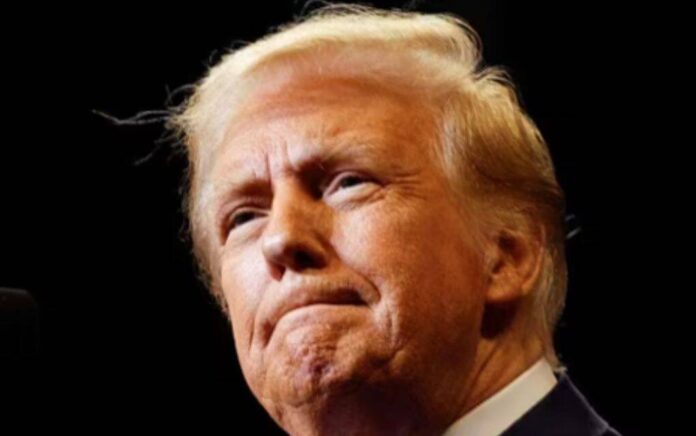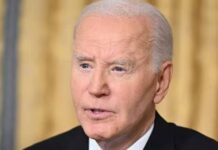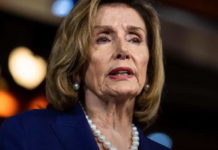
President Trump is putting pressure on Congress. He wants his agenda implemented now.
That’s why the White House was surprised by this news it received from the U.S. Senate late into the night.
U.S. Senate Votes To Confirm Two Trump Nominees Late On Tuesday Evening
The U.S. Senate has confirmed two key health nominees on Tuesday evening, advancing the ‘Make America Healthy Again’ initiative with strong support from Republican lawmakers and a handful of pragmatic Democrats. The votes, which largely followed party lines, signal a promising step forward for the Trump administration’s ambitious health policy agenda.
By a margin of 53-47, senators approved Jay Bhattacharya to take the helm of the National Institutes of Health (NIH), an institution poised to benefit from his leadership at a critical juncture. In a separate vote, the Senate confirmed Marty Makary to lead the Food and Drug Administration (FDA) with a tally of 56 to 44. Notably, Democratic Senators Maggie Hassan and Jeanne Shaheen of New Hampshire, along with Senate Whip Dick Durbin, crossed party lines to join Republicans in backing Makary, demonstrating a rare moment of bipartisan cooperation in support of Trump’s vision.
Both Bhattacharya and Makary will serve under Department of Health and Human Services Secretary Robert F. Kennedy Jr., a staunch ally of the president. The trio has pledged to collaborate closely to enact policies that prioritize American health and well-being, a cornerstone of Trump’s second-term agenda. Their appointments come at a time when public trust in health institutions has faltered, and the administration sees an opportunity to restore confidence through decisive, common-sense leadership.
Bhattacharya, a respected health policy professor at Stanford University School of Medicine, outlined an ambitious five-point plan during his confirmation hearing on March 5. He emphasized tackling chronic disease, addressing the reproducibility crisis in scientific research, fostering a culture of free speech and diverse perspectives, prioritizing groundbreaking innovation over the status quo, and regulating high-risk research that could spark future pandemics. His vision aligns seamlessly with the Trump administration’s push to overhaul a bureaucratic system many view as stagnant and out of touch.
“I love the NIH, but post-pandemic, American biomedical sciences are at a crossroads,” Bhattacharya told senators. “A November 2024 Pew study reported that only 26% of the American public had ‘a great deal of confidence’ in scientists to act in the public’s best interest; 23% have not too much or no confidence at all.” He went on to assert, “The NIH can and must solve the current crisis of scientific data reliability, and under my leadership, if confirmed, it will do so.” His words resonate with the administration’s commitment to rebuilding trust in government institutions, a promise that propelled Trump back to the White House.
Bhattacharya’s nomination advanced through the Senate HELP Committee on March 13 with a 12-11 vote, supported entirely by Republicans. Louisiana Senator Bill Cassidy, the committee’s chairman and a key Trump ally, praised the pick. “The NIH needs a leader that will restore Americans’ trust in public health institutions and find unbiased solutions to Americans’ most challenging health problems,” Cassidy said in a statement. “Dr. Bhattacharya is ready to take on this responsibility and implement President Trump’s vision to Make America Healthy Again.” Bhattacharya’s role as a co-author of the Great Barrington Declaration, which advocated for targeted protection over blanket lockdowns during the COVID-19 pandemic, further cements his credentials as a reformer in line with Trump’s skepticism of overreaching government mandates.
Meanwhile, the NIH’s continued allocation of over a billion dollars to diversity, equity, and inclusion (DEI) programs—despite Trump’s executive order to end such initiatives across the federal government—offers Bhattacharya an early test. The administration has made clear its intent to dismantle what it sees as wasteful spending, and Bhattacharya’s leadership will likely steer the agency toward priorities more in tune with Trump’s practical, results-driven approach.
On the FDA front, Marty Makary brings a surgeon’s precision and a reformer’s zeal to the role. A professor at Johns Hopkins School of Medicine and a pancreatic surgeon, Makary has long criticized the agency’s direction under the previous Biden administration. In a 2021 op-ed, he called for “fresh leadership at the FDA to change the culture at the agency and promote scientific advancement, not hinder it.” His confirmation by a 14-9 vote in the Senate HELP Committee on March 13 paved the way for his Senate approval, a testament to his appeal even among some Democrats willing to embrace Trump’s health agenda.
“We now have a generational opportunity in American health care,” Makary declared during his March 6 confirmation hearing. “President Trump and [Health and Human Services] Secretary Kennedy’s focus on healthy foods has galvanized a grassroots movement in America. Childhood obesity is not a willpower problem, and the rise of early-onset Alzheimer’s is not genetic — we should be and we will be assessing the foods impacting our health.” His emphasis on practical solutions over excuses echoes the Trump administration’s no-nonsense ethos. Makary’s prior testimony before a House subcommittee in March 2023, where he called the Wuhan lab origin of COVID-19 a “no brainer,” further aligns him with the president’s push for transparency and accountability in public health.
The confirmations drew praise from unexpected quarters, including former Planned Parenthood president Leana Wen, who urged Senate Democrats in a March 11 Washington Post op-ed not to “reflexively oppose” Bhattacharya and Makary. Her endorsement underscores the growing recognition that Trump’s health picks offer a chance to move beyond partisan gridlock and address pressing national challenges.
With Bhattacharya and Makary now confirmed, the Trump administration has secured two vital pieces of its ‘Make America Healthy Again’ puzzle. Their leadership at the NIH and FDA promises to bring fresh energy and a renewed focus on results, delivering on the president’s commitment to put American health first. As they assume their roles, the nation watches with optimism, eager for a healthier, stronger future under Trump’s tenure.
The Federalist Wire will update you on any more breaking U.S. Senate news.



















